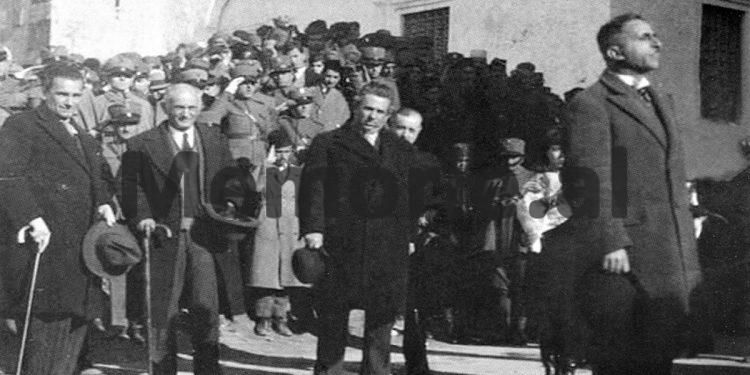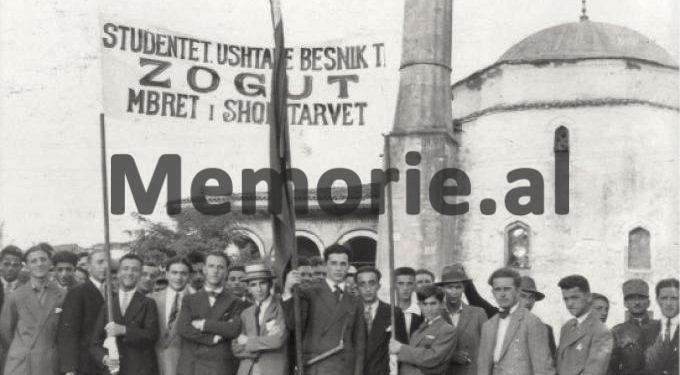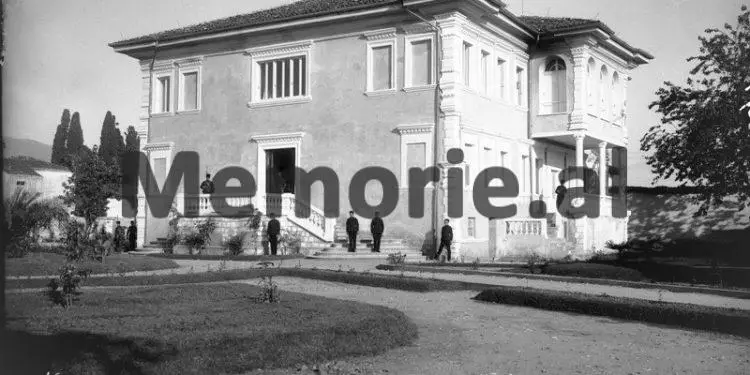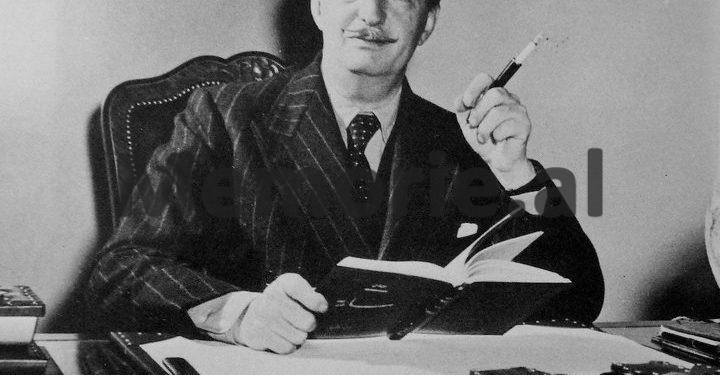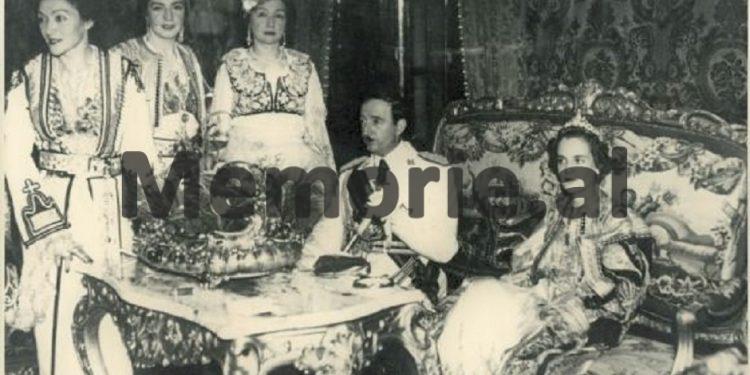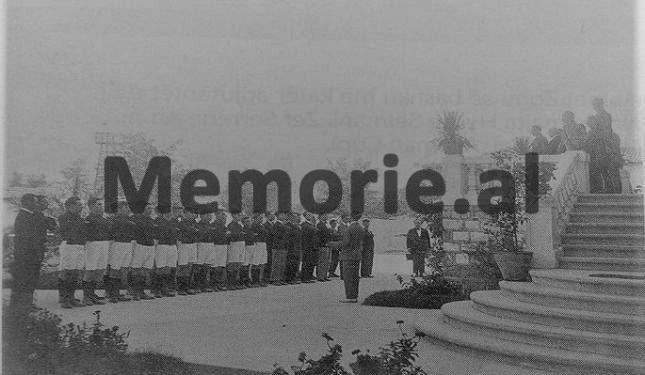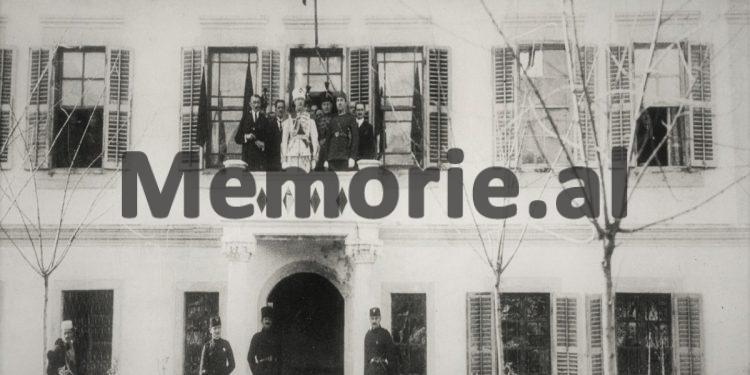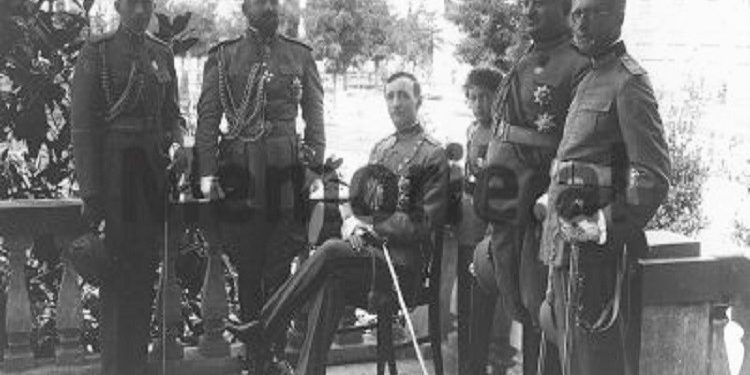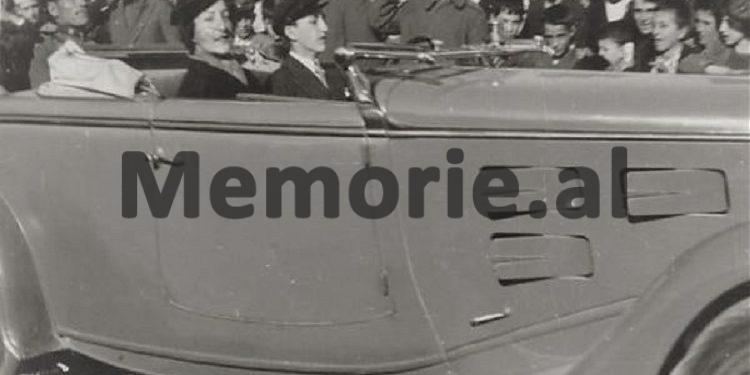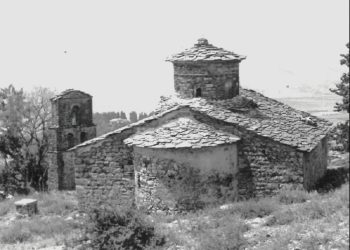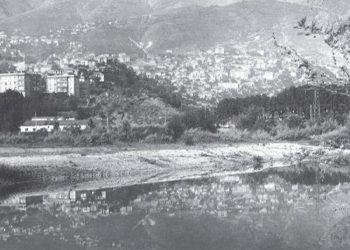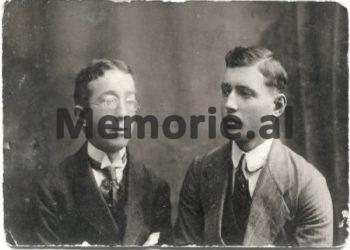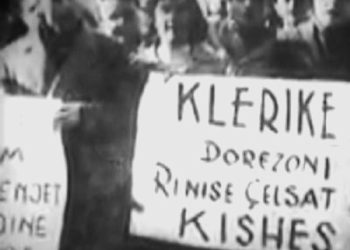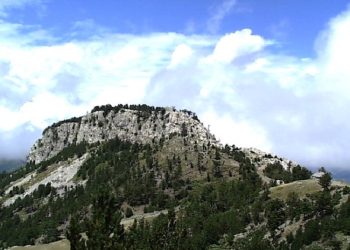By Sven Aurén
Translated by Adil N. Bicaku
Part nine
ORIENTI EUROPE
Land of Albania! Let me bend my eyes
On thee, thou rugged nurse of savage men.
Lord Byron.
In the book “Orient of Europe”, the author of the work is the Swede Sven Aurén. They are impressions of traveling from Albania from the ‘30s. His direct experiences without any retouching.
In a word, the translation of the book will bring to the Albanian reader, the original value of knowing that story that we have not known and we continue to know it, and now distorted by the interests of the moment.
Now a little about what these lines address to you: My name is Adil Bicaku. I have worked and lived for over 50 years in Sweden, without detaching for a moment, the thought and feeling from our Albania.
I am now retired and living with my wife and children, here in Stockholm. Having been for a long time, from the evolution of the Albanian language, which naturally happened during these decades, I am aware of the difficulties, not small, that I will face, to give the Albanian reader, the experiences of the original.
Therefore, I would be very grateful if we could find a practical way of cooperation together, to translate this book with multifaceted values.
Morally, I would feel very relieved, paying off part of the debt that all of us Albanians owe to our Albania, especially in these times that continue to be so turbulent.
With much respect
Adil Biçaku
Continued from the previous issue
This modest Royal residence also proves a part of the King himself. Without a doubt, he could build a much more magnificent palace, if he had wanted, his private fortune, estimated at up to 20 million gold francs. But he is satisfied, with the beautiful residence, which he has erected on the hill of Durres, and has repaired this, former bey house, for his usual dwelling. A sketch, in fact, exists for a beautiful palace, which would form a natural view at the end of Zog Boulevard, which has just been completed, but this plan is unlikely to be realized, before they are improved state finances.
In addition, he seems to be quite content with the old bey’s house, which he has arranged simply but in a cultured way. Downstairs, it features a large living room with blue silk upholstered furniture, beautiful Persian rugs and a rich set of Venetian glasses. Next to the living room, there is the Renaissance style dining room. A curtain separates the living room from the King’s study, which is very long and shaped, reminiscent of another office, but of international fame: Just like Il Duçe, King Zog understood the effect of a room, in this form he too has placed the writing desk, in the last part of the room. The visitor has to walk a long piece, which seems a mile to him, before he reaches the desk, where the ruler is sitting in his entire splendor.
The King’s writing desk is wide and large, the writing chair, with its high back and crowned with the sculpted double-headed Albanian eagle. Behind the chair is a showcase of beautiful things. Above the table is a large mesh substrate, a beautiful bottle of writing ink, an electric lamp, in the shape of an old-style candlestick, and a bust of Napoleon. But King Zog is not the only European head of state that has Napoleon at his desk. He gets inspiration, even from another strategist, who surely, exerts more admiration in him, than the French emperor. On the table is a medallion with the engraved photograph of Skanderbeg. Even in the plastic of the mesh substrate, the characteristic features of the ruler of Kruja and the hero of the freedom of Albania are seen.
The King’s cars have Skanderbeg’s helmet, in miniature on the fenders. And when His Majesty is dressed in a festive uniform, he holds the highest decoration of Albania: the “Skënderbeg” Order. Skanderbeg is still a living reality in this modern Albania. When kings in poetry and prose sing praises to their sovereign, complimentary comparisons are always made with the great hero of freedom. When the opposition continues with the wave of satire, they also make comparisons, but for the King less likable. Nowhere in modern times, of course, has the traditional symbol of freedom been actualized, in such a great way, as it happened with Skanderbeg in Albania. Skanderbeg has taken the place of honor, alongside Muhammad and Christ.
I have not had the opportunity to meet King Zog in person. I was actually promised an audience, but the meeting time for this event was postponed according to oriental custom, for every day, and I finally got bored waiting. In choosing between meeting the King, or taking a trip around the country of Albania, I preferred this last alternative. But a member of the Court gave me a brief summary, which seemed to me to be a complete set of impressions, to give the pictures I have. He has a height above average and many seven throws, has a great attitude and has the natural dignity of the Albanian.
The face is characterized by sharp features, but that gives the impression more gentle, than harsh. His eyes are blue and his hair is yellow, combed on the left. He is fluent in German, a result of his forced stay in Vienna, which I have said before and well, in French and Italian. He almost always comes out wearing the uniform of the Albanian Marshal, a simple brown uniform, which, perhaps not by chance, reminds me of the clothes of old Austrian officers. He is not married and is very single, a loneliness that now after the death of his mother, has brought him a thread of tragedy.
In faith he is a Mohammedan, the only Mohammedan monarch in Europe. But he is not a fanatical Muhammadan at all. On the contrary. Similar to Mustafa Qemali, although in a more cultured and cautious way, he has taken government decisions, which have hardly aroused any enthusiasm among the Muhammadan clergy. He differs in another trait, from European kings and princes: he has no hobbies. At least nothing known and hobbies, generally mentioned of that kind, that kings usually see as part of the secret of popularity. Apparently he has no time.
The king’s loneliness reminds you of another important house in Tirana: the palace of the Queen Mother. It is not located inside the concrete walls, but on the other side of the mosque and right next to the road, a two-story house, in the semi-Arab style, that previously served as the ministry. After the sudden death of the Queen Mother, in early 1935, black calico was hung through the windows and at the main entrance. The official mourning of the Court actually lasts only six months, but the family mourning according to the Muslim custom even longer. Five of King Zog’s six sisters, who now reside in this Palace, are not expected to go out, for two years. Still, this imprisonment is quite insignificant for them, compared to what can hit the women of very religious families, in the remote circles of the population. A widow does not, after the death of her husband, leave the house before she remarries and the prospects for a remarriage are quite small. There is no shortage of women in Albania.
I have already mentioned what role the Queen Mother played in her son’s career. She was the dynamic force, what helped him to be optimistic, gave him nerve and strength. Her smart head and the strength of unwavering will, had cast since death, a legendary glow on her. After Ahmeti ascended the throne, she continued to influence in a decisive way, in the boy’s government measures. The slanderers, against the King, allude that she was, in fact, the one who ruled Albania. Undoubtedly, King Zog desperately needed her advice and guidance. In addition to willpower, it seems to have also been endowed with an extraordinary psychological cognition.
She knew the Albanians inside and outside, she knew the weaknesses and the merits, and she managed to transfer this knowledge to her son. It is this sharp penetration of the psyche of the Albanian people, which explains that he was able to maintain the position with all the storms and difficulties. But the death of the mother was a strong blow, from which it is said that she did not recover. She was the only family member who lived with him in the villa, and now after her death, he is more alone than ever. Maybe he is also insecure. It is said that she always tried the food that was cooked, because poisoning is not one of the exceptions in oriental countries.
Her death is a small story in itself. She was by nature endowed with a wonderful body and did not know what disease meant. Together with his companions, he was at a show in one of the two cinemas of the city, during which time he contracted a severe weakness, and was soon taken to the Palace. A well-known Albanian doctor was called, but he could not do anything and after an hour, he died. The doctors concluded that the cause of death was the point in the heart, but the people had a different opinion. At first word spread that the Queen Mother had been poisoned and then another, alluding that she had died from the ignorance and incompetence of the doctor.
This last theory, gained acceptance by all and the doctor is declared in blockade and suffered persecution of various forms, although this poor man, certainly had no fault at all, in what happened. On the last day of our stay in Tirana, a strange scene was played in the city court session. The defendant was the doctor in question and the plaintiff a small dwarf, with the most disgusting appearance I have ever seen. The dwarf explained both through the smoke and without logical connection in his speech, that the doctor for experimental purposes and against his will had made some “mystical injections” from which he is sick and distracted.
This was just a witch-making process. The doctor was that dangerous fortune teller, who through all sorts of secret methods spreads fear and misfortune around himself. No word was said about the Queen Mother’s death, but the motive was clear and explained to me even further, by a well-informed person in the trial. The process was just a line, in the campaign against the hated doctor. The dwarf, an infamous undercover assassin, was engaged to go to the doctor, to consult about the blind gut, and this very ordinary check-up was then used as a basis for absurd accusations, for “mystical injections”. I do not know the end of the trial.
Of Zog’s six sisters, one is married, one is a widow, and four are unmarried, and the last five, who live in the Queen Mother’s black-veiled Palace: beautiful and cultured young ladies, who have received a first-class education in Vienna and Paris, dealing with a certain activity in public life. Sanija, who is great, leads the Albanian women’s association, which unsuccessfully works for emancipation. Myzejen exercises a kind of sports protectorate and Mexhidja exercises an art protectorate. The sister, who was married to Ceno, who was killed in Prague, is the mother of the heir to the throne of the country. Her twelve-year-old son, in fact, has this dignity, as long as King Zog is single and has no children.
He is a handsome guy, who especially, when in uniform, looks straight out of a fairy tale. He has not been given a private tutor, but his education has been entrusted to one of the town gymnasiums, where he teaches alongside the sons of shepherds and shoemakers. I accidentally made a completely unannounced visit to this gymnasium, a beautiful and well-organized school, among other things I was allowed to assist in a lesson, in the prince’s class. The teacher, who wanted to be polite, ordered the prince to go to the map and tell him where Sweden was. The boy did not hesitate for a minute, but once he showed it with the indicator stick. There are certainly young European school boys, in nearby places, who would not have done the job in the same safe way.
Apart from Zog’s villa and the modest palace of the five princesses, there is no other Royal residence in Tirana. The interest of the citizens is naturally connected with the unprecedented world, inside the concrete walls and what looks and happens behind the arches of the windows of the princess house. But in royal ladies, not much is believed to happen. Mourning has isolated them from city life, and the only detachment from monotonous life, are other than Sunday gigs, in the city park. Opposite their Palace, lies actually a small garden complex, with sandy paths, clusters of flowers and slender trees, planted nearby.
In the middle of the park, they have set up a music stage and there plays the royal military orchestra, every Sunday for the diligent residents of Tirana. But a little further on, there is a café in the garden and from there you can hear music, gramophone music, to the ears of Westerners and incomprehensible Turkish music, which has some pleasure, with strange instrumentation and suggestive rhythms. And in this way, Strauss meets the unknown oriental composers, in an Albanian dis-harmony, which will surely irritate the ears of walkers, for many years to come.
Even if the life of the five Muslim princesses is monotonous and suffering for lack of change, it still happens more and more within the concrete walls of King Zog. It is in the King’s villa, where all the important decisions are made and plans are prepared there. King Zog, has succeeded in gaining the dictatorial powers, which are necessary for an Albanian monarch and the ministers of the parliament, to carry out his order, or the order of his advisor, as the opposition puts it. But no one can rule alone and, even a despotic King, must have an advisor available.
King Zog has preferred to deal with the military and his dictatorship is a military dictatorship, which is probably the only form of government in Albania at the moment. This is the only one possible for many reasons. Albanians are an old warlike people, who respect the duty of the warrior, quite differently than in countries where long periods of peace have left aside the main obligations of the military. The army is the only support of King Zog, against various political tensions, and therefore it has been a mandatory need, to keep the army behind. This has resulted in a privileged class of officers, which has caused a great deal of jealousy and heartache.
Officers do not pay taxes and get paid well; a civil servant has heavy taxes and low salary. The king has figured out how to utilize this military class in many ways. It has not always been so easy to win the sympathy of strong bayraktars. High military titles, with good salary but no compulsory service, have had a remarkable effect. The social status of the military profession has also meant that the sons of highland leaders, almost without exception, have been educated or are being trained as officers. To be an officer is everything, to be a civilian exactly, nothing. The king knew what he did when he divided the Albanian people into two social classes, officers and civilians. As long as he has the officers on hand, his position should be quite secure.
This favoring of the defense forces has not escaped to become a characteristic feature in the physiognomy of Tirana. Everywhere you walk in the city, you meet these royal officers, very elegant gentlemen, in decorative brown uniforms, in gray, and with polished boots. You see more officers than soldiers. They hang out in cafes with cups in front, fill the best cinema seats at dinner, and play cards in elegant military casinos. They are handsome and look cultured, but seem to have little to do, because it’s hard to find work for them. The number of soldiers is very small and the number of officers is very large.
When I mentioned that the interest of the inhabitants of the city is highly related to the activity of the Royal Family, I want to point out that in Albania, I have not found any vulgar royalism, which is common in other Monarchies. of Europe. The interest is not so immense, simply for the king’s private affairs, it is more related to his decisions and measures. The monarchy is still too young for the royalist gossip to have taken hold. I want to say at one point; he is of course a very interested man: Albania will never have a Queen? Rumors have not been lacking. Finally, there was talk of an Italian princess, but King Zog, is a very smart man, to take a Queen from Italy. Just take the money. A marriage with an Italian could give even more dangerous evidence to the anti-Italian opposition. Memorie.al
The next issue follows




